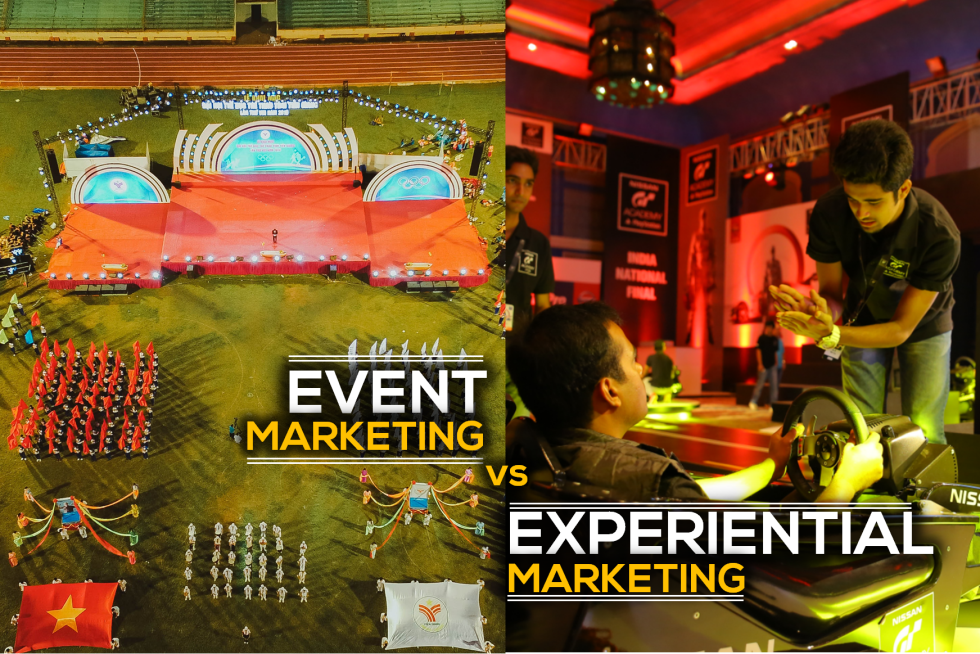A very common misunderstanding amongst millennials is that ‘All Forms of Marketing Are The Same and Are Done To Meet The Same Purpose.’ Well, there is no other statement more false and incorrect than this one. No, not all forms of marketing are the same and yes, marketing is done to meet different and varied purposes of the brand or clients. But the biggest misconception is when the audience starts to assume Event Marketing and Experiential Marketing are the SAME. You cannot create a bigger blunder than this one.
Though event and experiential marketing might sound similar in your mind, they are two absolutely different worlds and create an extremely different impact.
To clear your concepts and give you a better understanding of these two terms, here are a few major differences between Event and Experiential Marketing.
Engagement : Are you a fan of One Way Communication or Two Way Communication? If you prefer one-way communication then event marketing is apt for you. But if you’re looking for two-way interesting interaction then opt for experiential marketing. Yes, the way an event engages with its delegates is one of the crucial differences between the two terms. While event marketing seeks to only provide information to its clients through brochures and pamphlets, experiential marketing strives to involve and know their delegates to their best capacity.
They design an engaging event by including fun involving activities like games, trivia questions, polls or demo zones, photo booths, etc.
Experience : Experience, if defined in event terms, is to make the delegates feel elated, special and important during an event. Both event and experiential marketing endeavour to put their best foot forward to provide a mesmerising and long-lasting experience to the clients. So, now you will question what makes these two types of marketing distinct from each other? Event Marketing is known to create an identical experience for all. Meaning, each member will feel the same way, not more nor less.
But, experiential marketing has a knack to organise a unique experience for every individual. Let’s see this example. Shobiz designed a sensational media drive for the New Ford Aspire in Jodhpur through curvy and hilly roads that instilled so many different emotions amongst the partners, influencers and all participants, emotions that left them all ecstatic and energetic.
Goals : Experiential Marketing includes all the goals of event marketing but it’s not vice versa. The former is a much broader term and includes a lot more planning, strategising, and execution points. Generating buzz, launching new products, obtaining media coverage are a few of the common goals between them. But the responsibility of experiential marketing doesn’t end here. Creating positive brand associations, increasing brand awareness and loyalty are the deeper, more subtle yet highly important goals that experiential marketing aims to reach.
Time : There is always a particular start and end time for event marketing. The duration of those events doesn’t go beyond the location where it’s held. But it’s a completely different ball game for experiential marketing. The impact it creates on the audience stays for a much longer time through social media & allied activities. We see more people sharing content regarding the event through live stories, videos, posts that keep the buzz going on around the event.
Come to think of it, there probably are more differences and a few similarities too, between event & experiential marketing. If you can think of a couple, do comment below & let us know.

